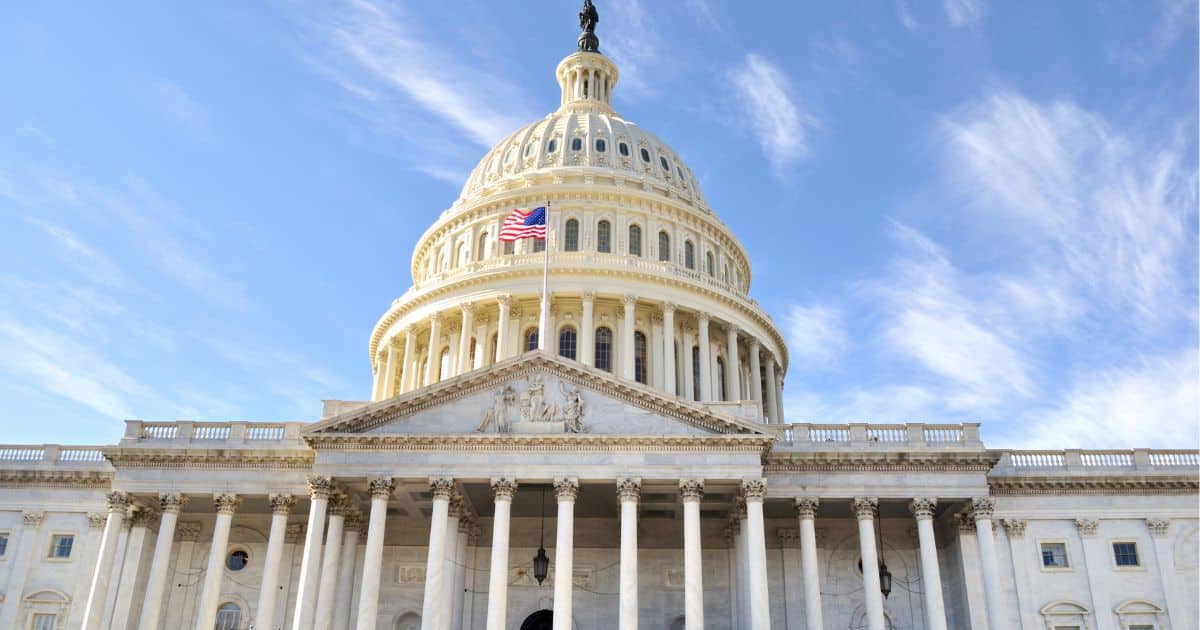The United States has a long and complex history with cannabis. Currently, it is classified as a Schedule I drug under the Controlled Substances Act (CSA), meaning it is considered highly addictive and has no accepted medical use. However, this classification has been heavily debated, with many arguing that cannabis should not be treated the same as other drugs in the same Schedule 1 category like heroin.
One of the main issues surrounding cannabis is the lack of federal guidance and the conflicting state laws regarding its legalization. While some states have fully legalized cannabis for recreational use, others still prohibit it entirely. This has created confusion and difficulties for businesses in the industry, as well as individuals who rely on cannabis for medical purposes.

To address this issue, a new version of the STATES Act has been introduced, with the goal of removing cannabis from the CSA and allowing states to decide how to regulate it. This legislation has the potential to greatly impact the current landscape of cannabis policy in the United States.
STATES 2.0 Act
Representatives Dave Joyce (OH-14), Lori Chavez-DeRemer (OR-05), Brian Mast (FL-21), Earl Blumenauer (OR-03), and Troy Carter (LA-02) introduced a modernized version of the Strengthening the Tenth Amendment Through Entrusting States Act 2.0 on December 7th, dubbed the STATES 2.0 Act.
One of the main provisions of the act is to remove cannabis from the CSA, effectively removing it from the federal list of controlled substances. This would give states more control over their own policies and allow them to regulate cannabis products within their borders. Additionally, the FDA and TTB (Alcohol and Tobacco Tax and Trade Bureau) would be responsible for regulating cannabis products, similar to how they regulate alcohol and tobacco.
While this act gives states more autonomy in regulating cannabis, it still prohibits distribution of cannabis to minors or at transportation safety facilities. This helps address concerns about potential negative impacts on public safety.
A press release from Representative Dave Joyce, outlines what the STATES Act would accomplish:
- Amends the Controlled Substances Act (21 U.S.C. § 801) (CSA) The STATES Act amends the Controlled Substances Actto no longer classify marijuana as a substance covered by the Controlled Substances Act, that is manufactured, produced, possessed, distributed, dispensed, administrated, or delivered in compliance with State and Tribal law, while also ensuring states that opt to maintain prohibition receive federal support and assistance for this enforcement.
- Continues to apply the following federal criminal provisions under the CSA by prohibiting:
o Distribution of marijuana to anyone under the age of 21; and
o Employment of persons under age 18 in marijuana operations.
- Regulates marijuana products through Alcohol and Tobacco Tax and Trade Bureau (TTB) and the Food and Drug Administration (FDA) by outlining that the FDA should classify marijuana products as they fall into specific categories, such as drug, food and dietary supplements, or cosmetics, to ensure products meet the standards for contaminant testing, manufacturing expectations, and marketing practices. This bill will also make clear the FDA will not have the authority to require premarket approval.
- Prohibits the distribution of marijuana at transportation safety facilities such as rest areas and truck stops.
- Bars the distribution or sale of marijuana to persons under the age of 21 other than for medical purposes.
- Instructs the Comptroller General of the United States to conduct a study on the effects of marijuana legalization on traffic safety, including whether states are able to accurately evaluate marijuana impairment, testing standards used by these states, and a detailed assessment of traffic incidents.
- Addresses financial issues caused by federal prohibition by clearly stating that compliant transactions are not trafficking and do not result in proceeds of an unlawful transaction. Additionally, conduct in compliance with the STATES Act shall not be subject to section 280E of the Internal Revenue code relating to expenditures and revenue in connection with the sale of illegal drugs.
“The current federal approach to cannabis policy infringes on the rights of states to implement their own laws, stifling critical medical research, hurting legitimate businesses, and diverting vital law enforcement resources needed elsewhere,” said Congressman Joyce, Co-Chair of the Congressional Cannabis Caucus. “The STATES Act does what every federal bill should do – help all 50 states succeed. This bill respects the will of the states that have legalized cannabis in some form and allows them to implement their own policies without fear of repercussion from the federal government.”
Removing Cannabis from the CSA, Via STATES 2.0 Act
Removing cannabis from the CSA with the STATES act 2.0 would have a significant impact on states and their ability to regulate cannabis within their borders. The current federal approach, which classifies marijuana as a Schedule I drug, hinders the ability of states to implement their own laws and policies related to cannabis. This has caused conflict between state and federal laws, leading to confusion and challenges for individuals and businesses operating in the cannabis industry.
By removing cannabis from the CSA, states would have more autonomy in regulating cannabis products. This would allow them to tailor their policies according to the needs and preferences of their residents, rather than being bound by federal restrictions. It could also potentially resolve the conflict between state and federal laws, providing clarity and consistency for individuals and businesses operating in the cannabis industry.
One of the biggest impacts of removing cannabis from the CSA would be on businesses within the cannabis industry. Currently, due to its classification as a Schedule I drug, many banks and financial institutions are hesitant to provide services to cannabis businesses, leaving them largely reliant on cash transactions. This not only poses a safety risk for these businesses, but also makes it difficult to track and report on financial activities. With the removal of cannabis from the CSA, these businesses would likely have better access to financial services and be able to operate more safely and efficiently.
Additionally, removing cannabis from the CSA could open up opportunities for increased research and development in the medical cannabis field. Currently, federal restrictions make it difficult for researchers to access and study cannabis, hindering potential advancements in the medical use of the plant. By allowing states to regulate cannabis on their own terms, there is potential for more research and development opportunities to arise, leading to improved understanding and potential treatments using cannabis.
Full text of the bill below.
Powered By EmbedPress
Overall, removing cannabis from the CSA with the STATES Act 2.0 would have a significant impact on states, businesses, and research related to cannabis. It would give states more control over their own policies, potentially resolve conflicts with federal laws, and provide opportunities for growth and development within the cannabis industry.
So, it is imperative that this bill be passed in order to promote progress and success for all involved. The path forward looks bright with the possibility of increased safety, research, and economic opportunities for states and businesses in the cannabis industry. Let’s hope that the STATES 2.0 Act continues to gain traction and support in Congress to bring about positive change in the cannabis space.
Keep updated on all the latest news and updates in the Cannabis industry here at Beard Bros Pharms by signing for our Friday Sesh Newsletter here. Always Dank and Never Spam!
- Can CBD Help Combat Alcohol Binge Drinking? A Study Suggests It Might
- Missouri Hemp Farmers Form Missourians for a Single Market in Attempt to Redefine Regulations
- Restaurant Spotlight: 1811 in Berlin – Timeless Taste in Charlottenburg
- Texas Governor Abbott Vetos Senate Bill 3, Calls For Special Legislative Session
- Petition Calls on Meta to End Cannabis, Psychedelic, and Harm Reduction Communities Censorship
- Texas Expands Medical Cannabis Access with House Bill 46















